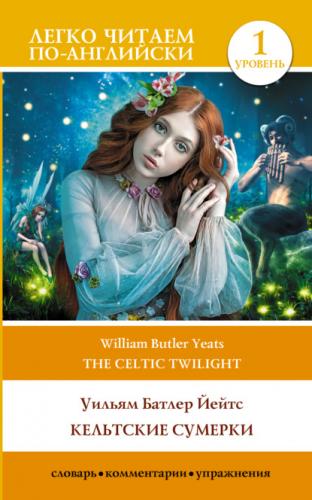There is, however, a man in a Galway village who can see nothing but wickedness. Some people think he is very holy, but others think he is a little crazy. He says, “I know a priest who was looking on the ground like he was searching for something, and a voice said to him, ‘If you want to see them, you will see plenty of them,’ and his eyes opened, and he saw many of them on the ground. Sometimes they sing and dance, but they always have split feet[100]. One night, after walking back from Kinvara, he felt one coming beside him. He could feel the horse the fairies was riding, but it didn’t sound like a horse’s hooves[101]. So he stopped, turned around, and loudly said, ‘Go away!’ and the fairies left and never bothered him again. He thinks they are fallen angels, and after their fall, God created Hell[102]”
“I saw Hell once. It was like a vision. It had a tall metal wall around it with an archway[103] and a straight path leading into it. Inside the wall, there were pathways, and on the left, there were five big furnaces[104] where souls were kept with heavy chains. I quickly turned and left, but as I turned, I looked at the wall again and couldn’t see an end to it.
“Another time, I saw Purgatory. It seemed to be in a flat place without any walls, just a bright fire, and souls standing in it. They suffer almost as much as in Hell, but there are no devils there, and they have hope for Heaven.”
“ And I heard a voice calling to me from there, saying, ‘Help me get out of here!’ When I looked, it was a man I knew from the army, an Irishman from this county. “
“I reached out my hand at first, but then I shouted, ‘I’d rather be burned in the flames than come within three yards of you.’ So he said, ‘Well, help me with your prayers,’ and that’s what I do.
THE LAST GLEEMAN[105]
Michael Moran was born around 1794 in a place called Black Pitts, in Dublin’s Liberties area, specifically in Faddle Alley. Two weeks after he was born, he became blind because of an illness. This became a blessing for his parents because they could send him out to recite rhymes and beg for money on the streets. By the time he became an adult, he was the leader among all the street ballad singers in the Liberties. However, his physical appearance was not impressive. He wore a coarse frieze coat[106] with a cape and scalloped edge[107], old corduroy[108] trousers, big boots, and carried a sturdy stick attached to his wrist with a leather strap. Moran lacked the traditional cloak and leather bag, but he was a true gleeman. He was a poet, a jester[109], and a news bearer[110] for the common people. In the morning, after finishing his breakfast, his wife or a neighbor would read the newspaper to him. They would continue reading until he interrupted[111] and said, “That’s enough – I need some time for my thoughts.” From these moments of reflection[112], he would gather material for his jokes and rhymes for the day.
When his reflective thoughts didn’t bring satisfactory results or when the crowd wanted something different, he would recite or sing a rhythmic tale or ballad about saints or biblical adventures. One of his most well-known religious tales was “St. Mary of Egypt,”. It tells the story of a sinful[113] woman from Egypt named Mary, who followed pilgrims to Jerusalem for questionable reasons. When she was stopped from entering the Temple by supernatural forces, she repented[114] and went to the desert, where she spent the rest of her life in solitary penance[115]. At the end of her life, God sent Bishop Zozimus to hear her confession, administer the last sacrament[116], and with the help of a lion, whom God also sent, dig her grave. Moran also had his own poem called “Moses,” which was a bit closer to poetry without being very close. However, he didn’t have much patience for solemnity[117] and before long, he parodied his own verses like this:
In the land of Egypt, close to the Nile,
King Pharaoh’s daughter went for a stylish swim.
She took her dip[118], then walked back to the land,
To dry her royal skin, she ran along the beach.
A bulrush[119]tripped her, and then she saw
A smiling baby in a bundle of straw[120].
She picked it up and asked in a gentle voice,
“Hey, girls, who among you owns this child?”
But most of his funny rhymes were jokes and teasing about the people he knew. For example, he liked to make fun of a shoemaker who was known for showing off[121] his money but not keeping himself clean. He would sing a song to remind him of his humble beginnings. We only have the first verse of that song:
At the dirty end of Dirty Lane,
Lived a dirty cobbler[122], Dick Maclane;
His wife was in the old king’s reign
A stout brave orange-woman[123].
On Essex Bridge she strained her throat,
And six-a-penny was her cost.
But Dickey wore a brand-new coat,
He got among the yeomen[124].
He was a bigot[125], like his clan,
And in the streets he wildly sang,
O Roly, toly, toly raid, with his old jade[126].
He had a lot of troubles. Once, a policeman arrested him as a vagabond
